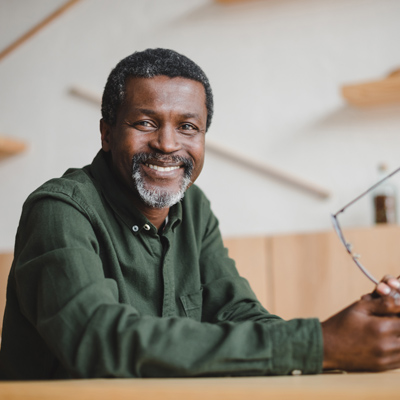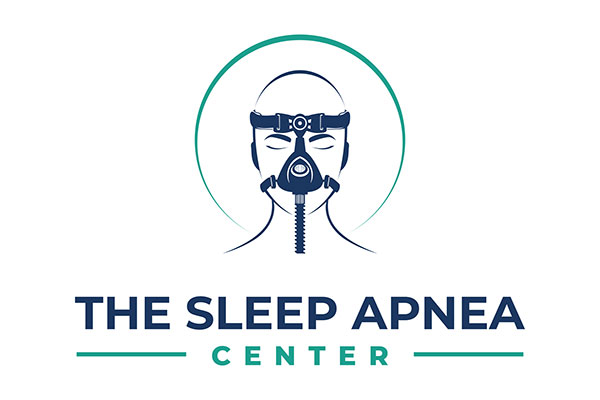CPAP AlternativesRockville, MD
CPAP alternatives may offer many of the same benefits with little to no side effects. A Continuous Positive Airway Pressure machine, CPAP, is a common treatment for sleep apnea and sleep/breathing disorders. However, many patients face drawbacks, such as dependency, difficulty sleeping, dry mouth, skin irritation, and more. We can determine the type of treatment that would best work for you after a consultation and diagnosis.
At The Sleep Apnea Center, we offer CPAP alternatives for patients experiencing disruptive sleep or a sleep condition or disorder. Our sleep medicine dentistry team can not only help treat your condition but also help you learn to manage it. To learn more or schedule a consultation, call 301-279-2600 today.
Understanding CPAP
A CPAP machine delivers continuous pressurized air through a tube while a person sleeps. CPAPs help in the treatment of sleep apnea and other sleep and breathing disorders to promote better sleep, facilitate proper breathing, and prevent complications from lack of oxygen. Interrupted breathing during a sleep cycle can lead to a higher risk for high blood pressure, heart disease, stroke, diabetes, and other health concerns.
CPAP machines and alternatives work primarily to keep the airways open, allowing for more oxygen and uninterrupted breathing during sleep. Unfortunately, many people become reliant on CPAP machines for breathing and depend on them for sleep. Other drawbacks include difficulty falling asleep (insomnia), nasal congestion, dry mouth, feeling claustrophobic, nosebleeds, feeling bloated, and skin irritation. CPAP alternatives can be beneficial for patients undergoing sleep or breathing difficulties who prefer not to use a CPAP machine.
"CPAP machines and alternatives work primarily to keep the airways open, allowing for more oxygen and uninterrupted breathing during sleep."
CPAP Alternatives
Mouth-breathers typically have a difficult time with CPAP machines since they can cause dry nose and throat irritation upon waking. A few ways to relieve mouth breathing without a CPAP machine include using a nasal decongestant, antihistamine, or saline wash to clear up nasal congestion before going to bed. In other cases, sleeping with the head propped up on a pillow can help. Some patients will benefit from consulting a doctor about surgery if they struggle with a deviated septum or another structural problem with their nose.
The Sleep Foundation provides a number of CPAP alternatives, including lifestyle choices, devices, and surgeries, such as:
Lifestyle habits:
- Weight loss and exercise
- Sleep position (sleeping on the back)
- Alcohol avoidance (especially before bed)
Devices:
- Nasal expiratory positive airway pressure (nEPAP): provides positive pressure when exhaling and prevents the collapse of the upper airway
- Mandibular advancement devices: cover the upper and lower teeth and keep the jaw in a position that prevents it from blocking the upper airway
- Tongue retaining devices: keep the tongue forward so that it does not block the airway
Surgeries:
- Orofacial therapy, or therapy for facial and mouth muscles: learning to correct the tongue’s position, so it does not block the airways, along with controlling and strengthening the muscles in the tongue, soft palate, lips, and face
- Maxillomandibular Advancement (MMA): The upper and lower jawbones are repositioned to help keep the upper airway open
- Uvulopalatopharyngoplasty: This surgery includes the removal of tissue from around the upper airway
- Tracheostomy: This procedure creates a hole in the windpipe where a tube is inserted in order to improve breathing
"Some patients will benefit from consulting a doctor about surgery if they struggle with a deviated septum or another structural problem with their nose."
Conditions and Signs Indicating a Need for Oral Appliance Therapy
CPAP machines are primarily used for the treatment of obstructive sleep apnea (OSA) and central sleep apnea (CSA). Sleep apnea causes symptoms such as snoring, gasping for breath during sleep, and waking often during the night. Interrupted sleep can lead to a large number of health-related issues and impair breathing long-term.
Signs and symptoms of sleep apnea or a sleep or breathing disorder include:/p>
- Have a decreased interest in sex or are experiencing sexual dysfunction
- Have attention, concentration, or memory problems when awake
- Have risk factors for sleep apnea, such as being overweight or obese, drinking alcohol, or smoking tobacco
- Hypersomnia (excessive daytime sleepiness)
- Insomnia (difficulty staying asleep)
- Irritable and experience mood swings
- Loud snoring
- Often wake with a headache
- Sometimes stop breathing when asleep
- Sometimes awake abruptly with shortness of breath, choking, or gasping
- Wake often to use the bathroom
- Frequently wake with a dry mouth or sore throat
"Sleep apnea causes symptoms such as snoring, gasping for breath during sleep, and waking often during the night."
Benefits of Oral Appliance Therapy
Oral appliance therapy is intended for breathing and sleep disorders, such as sleep apnea. Devices, including mouthguards, retainers, and nEPAP, help keep the airways open during sleep to promote healthy, regular breathing and prevent health complications. According to the American Academy of Sleep Medicine, oral appliances prevent the airways from collapsing by either holding the tongue or supporting the jaw in a forward position.
Oral appliances are effective, safe, and often portable, allowing patients to take them on the go or while traveling. Custom-made appliances tend to be much more effective as they hug the teeth and jaws, while over-the-counter appliances are one-size-fits-all. We will conduct a physical examination during the initial consultation, diagnose the patient’s condition, and recommend oral appliance therapy as needed.
"Oral appliances are effective, safe, and often portable, allowing patients to take them on the go or while traveling."
Questions Answered on This Page
Q. What are some alternatives to CPAP machines?
Schedule a Visit Today
CPAP alternatives and oral appliance therapy are available at our office. The The Sleep Apnea Center team looks forward to treating you and helping you learn to sleep better and manage your condition over time. Call our office at 301-279-2600 to learn more or schedule an appointment.
Frequently Asked Questions About CPAP Alternatives
Q. What is a CPAP machine?
A. A Continuous Positive Airway Pressure machine, CPAP, delivers continuous pressurized air and includes a humidifier, which maintains moisture while a person breathes and sleeps. This machine is typically used to treat sleep apnea. Some people use a CPAP machine to help relieve respiratory issues or reduce snoring.
Q. How can I prevent snoring without oral appliance therapy?
A. To prevent or reduce snoring, try to sleep on your side, raise the head of the bed, use nasal strips or a nasal dilator, and limit or avoid alcohol and sedatives before bed. Along with that, smoking cessation and maintaining a moderate weight can help. Treating chronic allergies or nasal problems, such as a deviated septum, may also aid in relieving sleep apnea, TMJ, and other sleep-breathing issues.
Q. What types of food and beverages should I avoid, and which ones help?
A. Carbohydrates, such as bread, cereal and milk, nuts, and crackers, can help you get better sleep. High-fat and oily foods should be avoided, especially right before bed. Caffeinated beverages, such as coffee and tea, as well as medications, including pain relievers, weight loss pills, diuretics, and cold medicines, largely affect sleep.
Q. What is oral appliance therapy?
A. Oral appliance therapy includes practices and devices that aid in breathing while sleeping. Oral appliances include mouthguards, retainers, and nEPAP, among others. Over time, oral appliance therapy can help treat sleep apnea and other sleep or breathing disorders and reduce snoring and other symptoms of these conditions.
Q. What is sleep apnea?
A. Sleep apnea is a severe sleep disorder where patients experience intermittent breathing in their sleep. There are three main types of sleep apnea: obstructive sleep apnea (OSA), central sleep apnea (CSA), and mixed sleep apnea syndrome (MAS) or complex sleep apnea. Sleep apnea can negatively impact a person’s oxygen levels and result in lower-quality sleep.
Definition of Sleep Apnea Terminology
- Airway:
- The pathway through which air moves from the nose or mouth to the lungs, essential for breathing.
- Dry Mouth:
- A condition where there is reduced saliva production, leading to a parched feeling in the mouth and potential discomfort.
- Insomnia:
- A sleep disorder characterized by difficulty falling asleep, staying asleep, or getting restful sleep.
- Saline Wash:
- A saltwater solution used to cleanse the nasal passages, helping to relieve congestion and remove irritants.
- Sleep Cycle:
- Refers to the sequence of stages the body goes through during sleep, including light sleep, deep sleep, and REM sleep, essential for restorative rest.
Contact Us
The Sleep Apnea Center is located at
350 Fortune Terrace #101B
Rockville,
MD 20854

